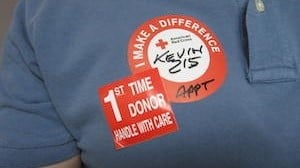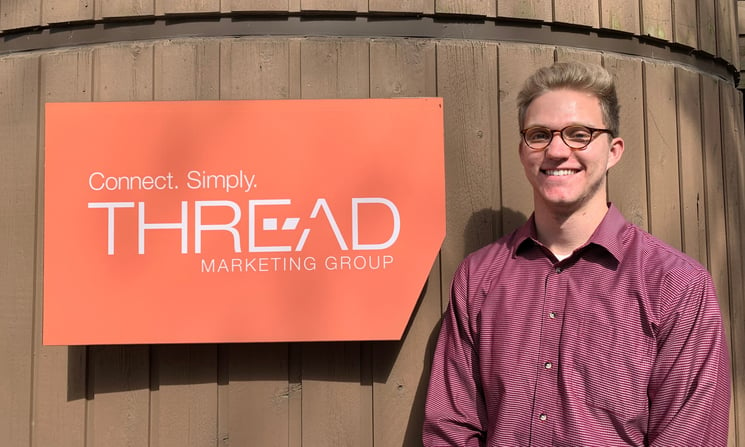In today's fast-paced, tight-budget, not-enough-hours-in-the-day world, we all could use ways to do more with less. And fundraisers aren't the only ones. In fact, that's what makes this next fundraising tip so important.


In today's fast-paced, tight-budget, not-enough-hours-in-the-day world, we all could use ways to do more with less. And fundraisers aren't the only ones. In fact, that's what makes this next fundraising tip so important.

It’s commonly said that organizations need a plan for thanking donors at least 3 times for every 1 gift. Oftentimes, how and when you thank them is even more important than how often. Think quality, over quantity.

A few years ago, I challenged myself to put my experience and (debatable) knowledge on paper and draft one fundraising tip that I could share with friends, colleagues and new professionals/volunteers to the field of fundraising. While I’ve shared a few of the tips in a variety of forums, I’ve decided it’s time to bring it back. I won’t promise the tips will come weekly, but they will come and hopefully you’ll find them helpful – even if you don’t work in fundraising.


Sometime in your life, you’ve probably heard the old canard that the Chinese symbol for crisis is a combination of the symbols for danger and opportunity. 
It turns out to be one of those things that isn’t true but should be.
That’s because too many leaders have a one-sided view of a crisis. You can tell by the kind of language that’s used. Leaders want to:
While those things are certainly important, at Thread we think they lead to companies and nonprofits thinking defensively during crisis planning.

Our counsel is to remember that there truly are two sides to a crisis situation in our times, if not in ancient Chinese typology. Beyond merely avoiding damage to a brand, we believe that a well-handled crisis can actually increase the trust a brand has and improve it’s overall reputation. Further, that philosophy should be baked into every part of the planning process.
My favorite example came when I was working for a local retail business with a high profile in our region. One of the company’s employees had been caught fraudulently providing an add-on service to customer’s orders. He was due to be charged by the County Prosecutor following a thorough investigation.
By traditional measures, there was no reason for my client to be damaged. An employee was cheating the company as well as the customers. The company had discovered it, reported it to authorities and cooperated with the investigation. As long as we told that story, things were likely to be fine.
Even so. our counsel was to think bigger. As with any situation, you want to tell your own bad news and not leave the key details in the hands of others, if at all possible. Our recommendation was to mail a letter to every customer, self-report what had happened, take responsibility and then offer a small gift to compensate. Timing was key: the letter had to hit between the time when the employee was notified of his indictment but before the media found out. What we told the client:
“If we do that, your trust will not just be protected. People will trust you more.”
We executed that plan and were pleased with the results. Because we told the story and told it first, we were credited by consumers for having nothing to hide. We weren’t concerned about a lurid headline sidetracking public opinion. And we had done the right thing—all the way down the line—and people were going to see it.
The feedback to the company was excellent. Numerous people said that they believed more in our client than they had before. Just as important was what didn’t happen: customers who walked in the door didn’t mention the story…customers didn’t leave…and business didn’t take a hit.
Not all crisis situations are as well set up as this one. In some cases, the company or non-profit might be more culpable than my client was in this case. I’d argue that even if that was the case, a company that makes a mistake and owns up to it and offers to make it good is well positioned to realize a long-term gain in public reputation. People understand that mistakes are made—what they don’t tolerate is spin, evading responsibility, or callous behavior.
If you’re interested in seeing how we create crisis plans that seek benefit as well as damage mitigation, let us know.

I’ve worked in a lot of different industries and companies throughout my career. Many of these were for-profit companies, but the majority of my professional experience comes from the not-for-profit sector. And in seeing the view from both sides of the fence, I’ve found more similarities between these two sectors than I think most people realize.

As a rising Junior at the University of Dayton, I was so thankful that Thread Marketing Group offered me an internship position for Summer 2019 in my hometown of Toledo, OH. A first internship entails many learning opportunities for any student, but I didn’t expect to learn as much as I did. Throughout the past 3 months, I’ve been working with various clients across service lines including PR, Social Media, Web, etc, and these are the 5 main things that I have learned about working in the business world with professional adults.

Just a few years ago, brand activation was a phrase most of us had never heard. But as the era of “engagement” dawned in marketing, brand activation became an essential part of any professional’s toolkit.
The equation was simple: replace impressions with experiences to create a stronger relationship and deeper loyalty between the consumer and the brand. In its truest sense, brand activation is the art of driving consumer action through brand interaction. The key aim of brand activation marketing campaigns is to get consumers to act. It’s about bringing brands to life via experiences and forming long-term emotional connections.

On November 9, 2018, we welcomed divided government back to Washington.
As Thread’s Senior Vice President of Communications Technology, I have been helping clients develop custom websites for over 15 years and, therefore helpful advice that will save you time and money when seeking a web development partner.
 Here at Thread, we have unveiled our updated brand, which is "Connect. Simply." Each of us has been asked to write a short blog post about that and what it means to them in their specialization.
Here at Thread, we have unveiled our updated brand, which is "Connect. Simply." Each of us has been asked to write a short blog post about that and what it means to them in their specialization.